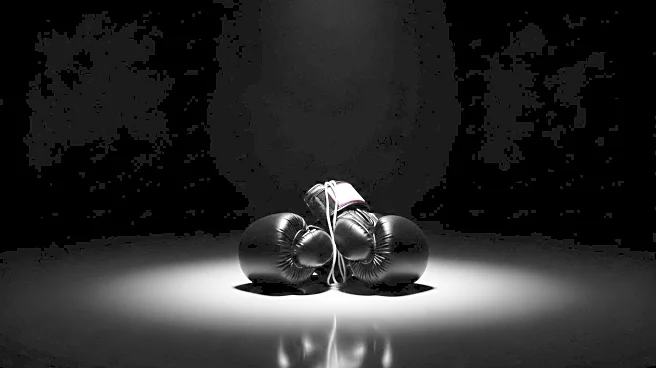What is the story about?
What's Happening?
Ricky Hatton, a former world boxing champion known for his titles in the light welterweight and welterweight divisions, was discovered dead at his home in England. The Greater Manchester Police reported that officers were called to Bowlacre Road, Hyde, Tameside, where they found the body of a 46-year-old man. Authorities have stated that the death does not appear to be suspicious. Hatton, who retired from boxing in 2012, had struggled with personal issues including alcohol, drug use, and depression. He had recently announced a comeback and was scheduled to fight Eisa Al Dah in Dubai on December 2. Hatton's career record stands at 45 wins, 3 losses, with 32 knockouts. He won his first world title in 2005 and was inducted into the International Boxing Hall of Fame in 2024.
Why It's Important?
Ricky Hatton's death marks the loss of a significant figure in the boxing world, known for his aggressive fighting style and resilience. His career was marked by notable victories and losses, including fights against Floyd Mayweather and Manny Pacquiao. Hatton's struggles with mental health and substance abuse highlight ongoing issues within the sports community regarding athlete well-being. His planned comeback was a testament to his enduring spirit and desire to return to the sport he loved. Hatton's legacy will continue to influence boxing, serving as a reminder of the challenges athletes face both in and out of the ring.
What's Next?
The boxing community is likely to pay tribute to Hatton's contributions to the sport, celebrating his achievements and acknowledging his personal battles. His scheduled fight in Dubai will be canceled, and discussions may arise regarding support systems for athletes dealing with similar issues. The International Boxing Hall of Fame may organize commemorative events to honor Hatton's legacy. Fans and fellow boxers may express their condolences and share memories of Hatton's impact on the sport.
Beyond the Headlines
Hatton's death underscores the importance of mental health awareness and support for athletes. His struggles with depression and substance abuse are not uncommon in the sports world, prompting discussions on how to better support athletes' mental health. The boxing community may use this moment to advocate for increased resources and programs aimed at helping athletes manage the pressures of their careers. Hatton's story serves as a poignant reminder of the human side of sports, beyond the accolades and victories.















